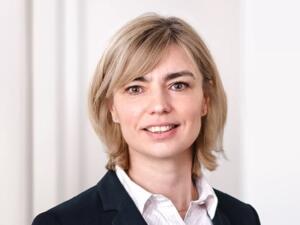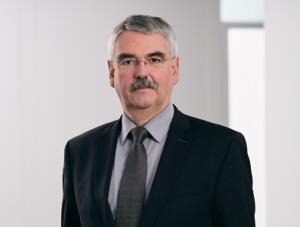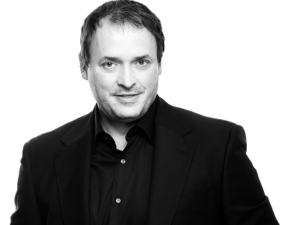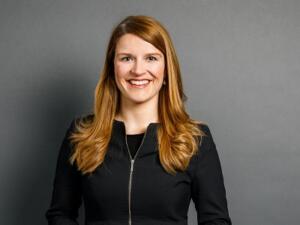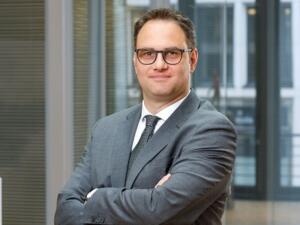One week after Netherlands defeat Biogen takes the win in Germany
Two days ago, market exclusivity for Biogen's multiple sclerosis drug Tecfidera expired in Europe. However, Düsseldorf Regional Court has prohibited various generics manufacturers from launching their own products on the German market. The ruling is in stark contrast to that of Dutch courts.
3 February 2025 by Mathieu Klos
According to estimates, the market for multiple sclerosis drugs in Germany alone is worth €710 million. Biogen’s major blockbuster Tecfidera accounts for a vast proportion of this. With market exclusivity for the drug expiring in Europe on 1 February, the battle for market share here has now begun in earnest.
In Germany, generic drug manufacturers have been waiting in the wings for some time. However, they still cannot enter the market. At Biogen’s request, Düsseldorf Regional Court prohibited various generic drug manufacturers from entering the market at the end of 2024 via an ex-parte PI. Biogen accuses the generic products of infringing EP 2 653 873.
EP 873 is a formulation patent of the original basic patent for Tecfidera. EP 873 protects a pharmaceutical composition comprising active ingredient dimethyl fumarate or monomethyl fumarate, plus one or more pharmaceutically acceptable excipients. Administered in a dose of 480mg per day, the formulation now forms the basis of Tecfidera.

Daniel Voß
Hexal (case ID: 4b O 70/24), Stada (4b O 71/24), Aliud Pharma (4b O 72/24) and Ratiopharm (4b O 74/24) asked the court to review the ex-parte PI decision. However, after an oral hearing at the beginning of the year, Chamber 4b under presiding judge Daniel Voß upheld the PIs on 30 January.
Tip of the iceberg
Biogen can enforce the order against a security deposit of €3 million. The court confirmed to JUVE Patent that it also prohibited Glenmark from distributing dimethyl fumarate in various dosages and dosage forms in Germany without a prior ex-parte PI (case ID: 4b O 76/24).
PIs are said to have been issued against at least three other generics manufacturers. However, they were not the subject of last Thursday’s judgments. JUVE Patent does not have any detailed information concerning this.
Hexal immediately announced an appeal against the Regional Court’s decision. The other generics manufacturers are still reviewing this step.
Second time successful
This is not the first time Biogen has attempted to keep generics manufacturers out of the German market. The company applied for PIs in 2022, also based on EP 873. The chamber under presiding judge Daniel Voß rejected the applications at the time in view of ongoing opposition proceedings at the European Patent Office.
In December 2024, the European Patent Office’s Opposition Division confirmed EP 873. A total of 14 opponents had tried to prevent the granting of the patent, including Accord, Hexal, Neuraxpharm, Polpharma, Stada, Teva, and Zentiva. Several opponents have since filed an appeal with the Boards of Appeal. The BoA will hear these at the end of November 2025.
Invalid in the Netherlands
The dispute over Tecfidera is ongoing in various countries across Europe with varying outcomes.
In the Netherlands, for example, the District Court The Hague nullified EP 873 two weeks ago, concluding that Biogen’s infringement claims are moot. Biogen had sued Polpharma (part of the Sandoz Group), Neuraxpharm, and Mylan (part of the Viatris Group) for infringement of EP 873.
- Hetti Hilge
- Thomas Musmann
- Sandra Pohlman
In principle, the way is now clear for Neuraxpharm, Polpharma and Mylan to launch their own products on the Dutch market. However, if the generics manufacturers enter the Dutch market, they run the risk of the courts overturning the ruling on appeal. Biogen has not yet announced whether it will appeal the Dutch ruling.
Rospatt and df-mp for Biogen
In the German proceedings, Biogen retained the same team as in the 2022 case. This time, the Düsseldorf IP litigation firm Rospatt led by partners Hetti Hilge, Thomas Musmann and Max von Rospatt as well as patent attorney Sandra Pohlman from Munich-based firm df-mp were more successful. The team is also representing Biogen in the oposition proceedings at the EPO. Rospatt associate Tabea Schäfer completed the team.
The generics manufacturers instructed their usual litigators. Hexal, for example, again relied on the same team that fended off Biogen’s PI in the first round. In addition to lead partner Matthias Sonntag, Mischa Krumm and Herwig Lux are part of the Gleiss Lutz team.
- Matthias Sonntag
- Michael Best
The patent attorneys Michael Best and Johannes Steinbauer represented Hexal again in this case and the EPO oppostion. Best’s former law firm Lederer & Keller has in the meantime merged with Kraus & Weißert to form Kraus & Lederer. Lead IP litigation counsel Michael Rein handled the proceedings for Hexal in-house.
Two clients for Bonabry
The new law firm Bonabry is representing two of the generics manufacturers. The firm split off from Preu Bohlig in 2024. Partner Daniel Hoppe took the lead in representing Stada and Aliud Pharma. Sarah Salaschek and Christian Holtz complete the team from Hamburg. Patent attorney Thomas Kernebeck from the law firm of the same name took over the technical part. He is also involved in the EPO opposition as a straw man.
- Daniel Hoppe
- Annika Lückemann
- Alexander Rubusch
Florian Pertenbreiter as head of patent litigation and Sufiyah Sulaiman as senior patent manager patent litigation represented Stada in-house.
Ratiopharm retained its go-to firm Bird & Bird again. Counsel Annika Lückemann from Hamburg had the lead. Lawyer Lucas Brons and patent attorney Jan van Dieck completed the team.
Glenmark turned to Taylor Wessing. Lead partner Alexander Rubusch and Eugen Reismann hail from the firm’s Düsseldorf office. The team also included patent attorney Anke Krebs from the Cologne-based patent attorney firm Dompatent.
